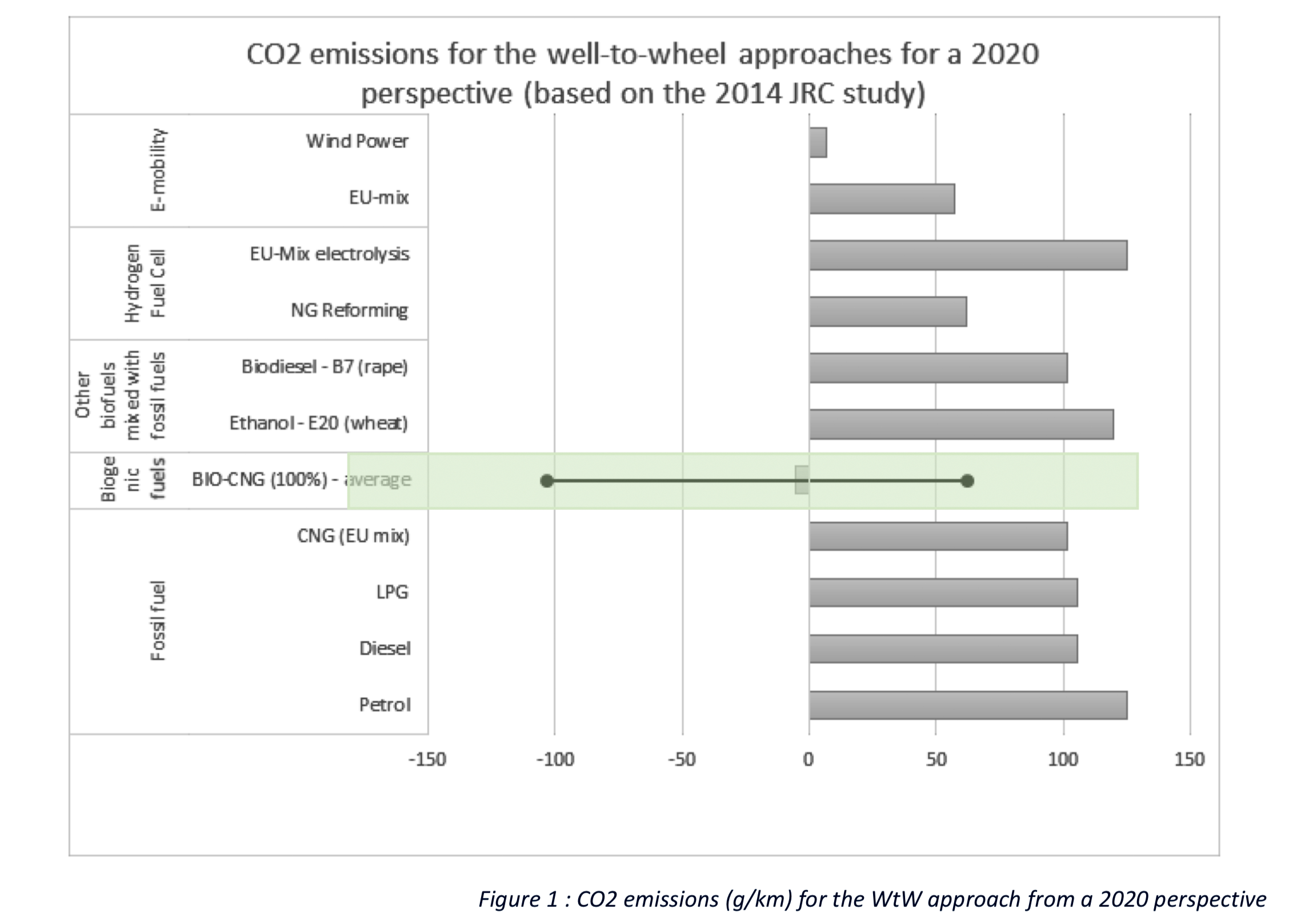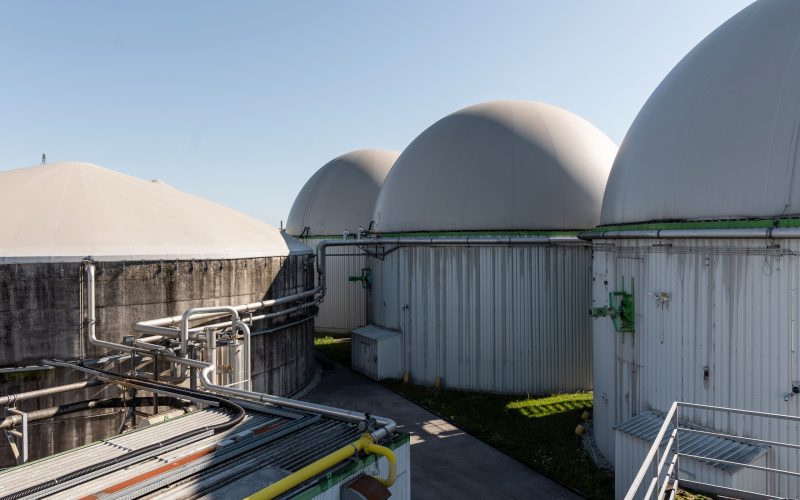The full potential of biomethane as a transport fuel — EBA research
European Biogas Association is launching a new paper providing a comprehensive analysis of the potential of biomethane for the fast decarbonization of the transport sector and policy recommendations to ensure the further scale-up of this green fuel.
The paper has considered 11 comparative studies analyzing transport emissions per type of fuel, which show that biomethane can reach even carbon negative levels of CO2 reductions in transport.

This renewable fuel is already available, scalable, and contributes to the development of the car industry in the EU. It is now crucial to untap the valuable role of biomethane on an equal footing with electric mobility to ensure the most needed decarbonization of the EU transport sector.
Apart from significantly reducing CO2 emissions, biomethane is at the heart of a circular economy: it is the best way to recycle biowaste, to produce valuable renewable gas and biofertilizers. This potential of biogas and biomethane is also pointed out in the recent Farm-to-Fork strategy of the European Commission.
The authors emphasize that the the further development of biomethane will support a strong car industry within Europe and provide additional resources for farmers from energy production.
Biomethane can reach even carbon negative levels of CO2 reductions in transport
EBA
Despite all current efforts from the EU, transport is the only sector that is not decarbonizing but shows even an increase in GHG emissions on a yearly basis since 2014. However, biomethane is already being used in NGV vehicles in Europe. The share of renewable energy in transport in the EU was 8.6% in 2018 whilst the share of biomethane in gas-fueled cars accounted for 17%.
EBA recommendations
- Recognize biomethane in the Strategy on Sustainable and Smart Mobility.
- Ensure further biomethane deployment, alongside with e-mobility, in the transport sector, and equally promote both fuels to foster the implementation of green fuels.
- Set targets for biomethane use in transport by 2030.
- Switch from TtW (Tank-to-Wheel) to WtW (Well-to-Wheel) or LCA (Life Cycle Assessment) approach by 2030 in all transport and fuel-related legislation to guarantee the accurate and comprehensive quantification of CO2 emissions in the transport sector.
- Recognize biomethane as a non-CO2 contributor, on equal footing as electric mobility, while WtW /LCA approach is not implemented.
- Promote biomethane as green fuel in the Alternative Fuels Infrastructure Directive (AFID).
- Encourage EU car manufacturers to develop and produce the required clean fuel gas engines that will enable the scale-up of biomethane in the transport sector and hence a faster.
Terminological aspects
- Tank-to-Wheel (TtW) approach does not consider emissions from production.
- Well-to-Wheel (WtW) approach measures all the emissions across the production and use chains.
- Life Cycle Assessment (LCA) approach considers not only the production and use of the fuel but also the emissions of the car during the manufacturing process and during the recycling at end of life, in Europe or abroad, which gives the most accurate impact on CO2 emissions.
Source: comparative analysis transport emissions per type of fuel, which show that biomethane can reach even carbon negative levels of CO2 reductions in transport presented by European Biogas Association (2020).
Bioenergy Association of Ukraine has been a full member of the European Biogas Association since 2019.


